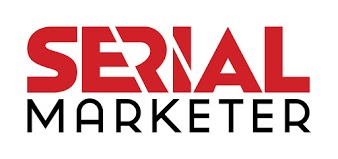Earlier, I posted coverage of the traditional media panel from today&39;s Gotham Media Breakfast. Now we get to the online panel coverage.
Overall, I found the traditional media panel more compelling for a number of reasons:
- Times are especially tough for traditional media companies, so it's really great timing to hear their strategies for dealing with this.
- The brands themselves — New York Times, FT.com, Nightline — are all powerhouses with long organizational histories to share.
- There was more time in total for the panel since they went first and ran a bit long.
- The last panel was more about tech demos with less time for Q&A, so the first panel had more to say.
That being said, the online panel did have some great insights, from the old media exec who became a tech entrepreneur, Keith McAllister, to the wunderkind who&39;s taking on print publishing behemoths, Jordan Goldman.
My notes from the session are below; most of them are paraphrased but exact quotes are noted.
- Moderator: Tom Goldstein, Professor and Director of Media Studies Program, University of California, Berkeley
- Tristan Harris, CEO, Apture
- Keith McAllister, former CEO, Mochila; former EVP and Managing Editor, CNN
- Andrea Spiegel, Chief Product Officer, TrueSlant.com
- Jordan Goldman, CEO, Unigo
As opposed to the traditional breakfast, this started with pitches and demos.
 Image via CrunchBaseHarris: You can always leave publishers and go to Google. Apture helps publishers harness the rest of the web and bring it on their site. [I&39;ve used this on my blog, but haven&39;t gotten into it yet. Unlike another plug-in, Zemanta, which I use religiously – both of which I encountered for the first time at Blog World Expo last year, Apture enhancements are done in post-production, once the content&39;s live. I like what it can do, but I&39;d love to incporate it during the writing/production process."]
Image via CrunchBaseHarris: You can always leave publishers and go to Google. Apture helps publishers harness the rest of the web and bring it on their site. [I&39;ve used this on my blog, but haven&39;t gotten into it yet. Unlike another plug-in, Zemanta, which I use religiously – both of which I encountered for the first time at Blog World Expo last year, Apture enhancements are done in post-production, once the content&39;s live. I like what it can do, but I&39;d love to incporate it during the writing/production process."]
 Image via CrunchBaseMcAllister: Mochila is attempting to reinvent the content syndication business with an advertising model. They take high quality editorial content and create custom publishing solutions for advertisers, and then can have any online publisher get it for free as they put ads on it. "Online publishing remains the wild, wild west." There are a few exceptions (eg NY Times). With online publishing, it&39;s just a question of how talented and creative you are, and then if you&39;re going for a vertical or scale.
Image via CrunchBaseMcAllister: Mochila is attempting to reinvent the content syndication business with an advertising model. They take high quality editorial content and create custom publishing solutions for advertisers, and then can have any online publisher get it for free as they put ads on it. "Online publishing remains the wild, wild west." There are a few exceptions (eg NY Times). With online publishing, it&39;s just a question of how talented and creative you are, and then if you&39;re going for a vertical or scale.
Spiegel: True/Slant&39;s creating a network of contributors – anyone with expertise in a particular area. They get everything they need to create a digital presence. [She&39;s first one to mention Twitter.] A contributor will have a specific perspective. They won&39;t cover sports, but they might have a niche like athletes&39; wives and girlfriends, or coaches who should be fired. The consumer can then participate. Received funding in June from Forbes Media and Jonathan Miller&39;s Velocity. Now in alpha with 20+ contributors.  Image via CrunchBase
Image via CrunchBase
Goldman: While a freshman in college, he launched a college guidebook, "Students Guide to Colleges." After college, he wanted to bring it online with editorial teams, plus a team of unpaid interns who they sent Flip video cameras to. They got 5-10% of students for the target 250 schools. Got 35,000 pieces of content. The site went live in September after 9 months of stealth mode.
Goldstein [I&39;ll try not to mix this up – Goldstein&39;s the moderator, Goldman&39;s the Unigo CEO]: What are your financial models?
Harris; It&39;s free for individual use. There will be a premium version for individuals with more customization. With large publishers like Reuters and Washington Post, they pay a licensing fee per month.
Spiegel: We will be an ad model. Contributors will be credible, distinct voices. Considering rev-share for contributors.
Goldman: It&39;s a mix of advertising and lead generation.
McAllister: Mochila shares revenues with content producers and publishers. The model evolved toward a premium advertising model. For the high end of brand advertising, they want a better kind of ad environment like custom brand environments. "Over the course of the next two years… display ads will start to reach the performance level of search advertising." That changes dynamics and impacts how much online publishers can make.
Due to a lack of time, it went right to audience Q&A from here.
Q: How does Apture rank source authority?
Harris: We&39;re looking for freely licensed content that we can bring into a page. Premium publishers get to put their own content at the top of related search results lists. Meanwhile, when your readers are going to leave your site, they&39;re going to wind up going to Wikipedia anyway.
McAllister: All machine aggregation technologies – none can deal with authority issues in terms of how the question was raised. There&39;s a degree of consumer trust in certain publishers.
Q: Between the two panels, there&39;s a divergence in the treatment of content. With some new media companies, there&39;s more of a sense of news as a commodity. Is that what you&39;re seeing? Or is news a unique resource that should be owned by the producer?
McAllister: I would challenge your premise. News has been a commodity since the Associated Press launched in 1866 and newspapers pooled resources to cover a war. In web publishing, you get machine aggregation sources, and then hybrid sources like Huffington Post. The New York Times has aggressively moved into aggregation. This has always gone on but the web makes it so much easier.
Q: How are you dealing with the recession?
Spiegel: There are two parts. From funding, we redid our budget. We&39;re good to go through at least Q1 of 2010. We feel quite comfortable. The second part is that what&39;s happened with the news industry has been good timing for us. Journalists who are now let go with their severance packages are coming here, so there&39;s great talent.
Goldman: We redid our budget and diversified revenue streams. Largely our content creation is free. When the economy&39;s rough there&39;s an incentive for consumers to use our free site.
McAllister: Like any company we restructured to make sure our financing met our goals. With brand advertising "there&39;s been a flight to quality." What&39;s over is the age of purely ad-supported digital businesses. Look up GlobalPost.com which is an attempt to reinvent the business model for global digital reporting. They have 65 international correspondents covering news for the American audience. Their business model is advertising, paying for premium content, and ecommerce.



![Reblog this post [with Zemanta]](http://img.zemanta.com/reblog_e.png?x-id=a0b54c45-05b9-48d2-beca-68a2f5bc37e7)



People reacted to this story.
Show comments Hide commentsI think that you are missing another up and coming site. Newsy.com, introduced on Monday, produces short 2-3 minute video reports that compare coverage from different media outlets and make sure that all of the information from the story is in one spot. Another positive thing is that they don’t mindlessly repeat the exact same report; instead they go a step further and analyze the news. Nowadays, nobody has any free time and so these short videos allow me to know everything that is going on in ten minutes. One last perk is that Newsy.com has teamed up with the University of Missouri Journalism School (best in the nation) to give hands on experience to their students in the newsroom. Clearly I am an advocate for this site and think that it is worth keeping an eye on.
Thanks for sharing, but to be fair, I’m hardly missing that site. This post
was published in January.